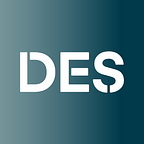Don’t get it twisted: Employee DEI engagement is leadership
By Melannie Denise Cunningham, guest author
As organizations become more explicit and active with their diversity, equity, and inclusion (DEI) intentions, the workplace can be fraught with confusion as employees resist the organization’s commitment to DEI values. Employees may be unable or unwilling to identify blatant examples of oppression, or those who are privileged may claim they are oppressed.
As a “community conversation convener,” I reject the narrative that describes “inclusion” as work that should embrace those who have historically been among the privileged and already included. These same people disagree with fundamental DEI values and intended outcomes. I also find tiresome the other false narrative that argues organizations can only evidence their absolute commitment to fairness and equality by including or even prioritizing those political, religious, or ideological views that discount or discourage the overall goals promoted by DEI.
Employees who report feeling “disengaged” within organizational DEI values and goals due to their ideas, beliefs, and affiliations are strongly broadcasting that they do not align with the organization’s commitment to DEI. As Poet Laureate, Scholar, and global humanitarian Maya Angelou clearly stated, “when people show you who they are, believe them.”
A rise in complaints against DEI work produces rich qualitative data that can inform organization leaders about how to boost engagement and achievement within the organization’s DEI objectives. Leaders can use data to design and implement strategies within their sphere of influence to improve employee DEI engagement. I recommend three “must do’s” to help formulate these strategies:
- You must understand the intercultural mindset of your employees at all levels. Assess employee intercultural competence (yours included) and provide a plan and support for individual development.
- You must adopt an “inclusive expectation” mindset. Create a culture where employees working towards organizational DEI values and outcomes are enthusiastically supported and celebrated. This strategy rewards engagement and achievement.
- You must center DEI work in accountability. Design DEI outcomes that are explicitly named and evaluated in employee job performance evaluation.
Leaders must also be responsible for operationalizing their organization’s DEI values to achieve stated outcomes. They should be role models and show their people that they value DEI. Their level of engagement in the work must be high. They must expect everyone to join them in doing the work required to achieve the organization’s stated goals. This clarity provides very little space for anyone to “get it twisted.”
Melannie Denise Cunningham is locally, nationally and internationally known as a community convener and peace builder. She focuses her energy on anti-racist community building. Melannie is the 2018 Greater Tacoma Peace Laureate and Executive Producer of the Northwest Regional Emmy Award winning documentary “Peace Queen” that chronicles her journey to the Nobel Peace Prize Ceremony in Oslo, Norway. Melannie and her sister host a regular podcast on Channel 253 titled, “WHAT SAY U? Real Sisters Real Talk.”
